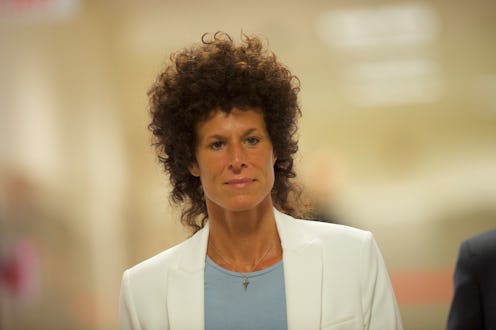
A jury is deciding Bill Cosby's fate, deliberating whether the comedian is guilty of three counts of aggravated indecent assault. As Cosby's trial came to a close and jury deliberations began Monday, Cosby's accuser in this case, Andrea Constand, has also received a lot of attention. Unfortunately, some of this attention involves observers trying to blame Constand for Cosby's alleged actions and the ramifications he could face as a result. This blaming is unacceptable, and the best way to respond to it is to speak up.
Constand is a former Temple University employee who knew Cosby through university connections. Constand accused Cosby of sexually assaulting her back in 2004, claiming that Cosby invited her over to his house and gave her pills, which incapacitated her as, she says, he assaulted her. Cosby's lawyers claim that the sexual activity that took place was consensual.
Constand is the only one of almost 60 women who have accused Cosby of sexual assault to have her case go to trial, since hers is the sole case for which the statute of limitations has not yet expired. As a result, Constand has been particularly subject to scrutiny. For example, according to Rolling Out, Cosby's lawyers have attempted to engage in "victim blaming" Constand by trying to introduce her sexual history into the trial as evidence. (FYI: introducing the sexual history of victims of alleged sexual assault is typically not allowed in court.)
Moreover, some on social media have taken to calling Constand a "liar" and/or blaming her for the alleged assault. Indeed, one person even referred to Constand as a "home wrecker," and another said they hoped that Constand and others were asked why they were meeting with a married man alone. Other people attacked Constand's appearance and blamed her for hurting Cosby's reputation.
The "victim-blaming" of Constand is unacceptable. Although Cosby has not been convicted of sexual assault, it does not at all give anyone a right to attack his accuser, nor accuse her of lying or facilitating her own assault. Victim-blaming those who report sexual assault is not only cruel and unfair to the victim, but also further entrenches the notion that people should not report their assaults, since they may subsequently be blamed for them. This is obviously highly dangerous. It is imperative that victims of sexual assault feel safe in coming forward with their stories.
The best way to respond to people who are blaming Constand — and to prevent further victim-blaming — is to speak up, whether it is in person or online. According to the Center for Relationship Abuse Awareness, one of the best ways to stop victim-blaming is to "challenge victim blaming statements when you hear them." A guide on ending victim-blaming from Southern Connecticut State University also says that men and women can avoid perpetuating rape culture by being "active bystanders" and speaking up when they hear offensive comments being made about sexual assault and/or about victims of sexual assault.
In Constand's case, being an active bystander involves raising awareness (in conversation as well as on your social media profiles) that some people are seeking to blame Constand for reporting an alleged sexual assault — and explaining why this is not acceptable. It also involves responding to and calling out those in your networks (either in person or virtually) who seek to blame Constand and explaining to them why it is absolutely not okay to do so. Finally, posting online messages of support for Constand's bravery and willingness to testify could go a long way in helping counter any blame-oriented messages. Overall, activism and the willingness to speak up are key when it comes to responding to those who are blaming Constand.
Discussion of the Bill Cosby trial should center around Cosby's alleged crime and the evidence presented at the trial, and nothing else. Bringing Constand into the conversation and, indeed, resorting to blaming her for how the trail has unfolded, should not be tolerated.